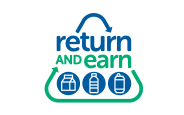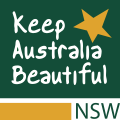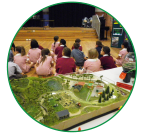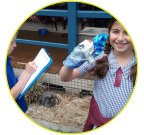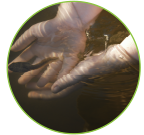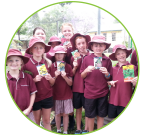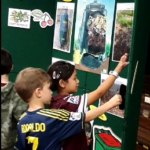ENVIROMENTORS®
NSW’s leading incursion-based environmental education service.
ENVIROMENTORS®
Since 1994, EnviroMentors® has been the country’s leading mobile incursion-based environmental education program, reaching every corner of NSW with sustainability workshops.
EnviroMentors® modules provide a range of education services to improve community awareness and engagement on local sustainability issues and initiatives. Like other KAB NSW programs, EnviroMentors® focuses on motivating communities to participate in simple and practical ways to improve their local environment. Our team are qualified educators as well as experts in sustainability.
The EnviroMentors® program offer a series of different workshops that cover a range of current environmental issues. All modules are designed to engage students through movement and fun activities.
ABOUT
All our EnviroMentors ® workshops are designed to encourage students to become environmental stewards in their households, spreading the message to the wider community. The pace of the workshops is mixed by incorporating games, kinaesthetic learning and props to keep children engrossed and actively engaged.
Modules are tailored for each learning stage, from preschool to Year Six (ages 4 to 13).
Workshops run for 45 minutes to an hour, with educators conducting up to five sessions per day. Schools receive a pack which includes follow up resources.
WASTE DISPOSAL AND MINIMISATION MODULES
We offer three focussed modules on the issue of circular economy, waste management, waste reduction, correct bin use and recycling.
Students develop skills and attitudes that facilitate the adoption of waste minimising actions and empowering students to spread the information in their homes and communities.
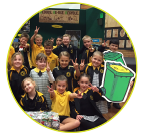
In the Bin
Students are introduced to the waste services in their local council area. Students investigate the benefits of avoiding, recycling, composting, FOGO, reusing, sharing, and repairing. Students are introduced to the circular economy, and we discuss how a circular economy can eliminate waste, the need for new resources and reduce emissions from landfills.
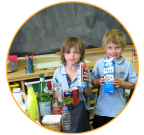
Recycling
Designed to increase and correct recycling behaviours, reduce incorrect bin use and minimise contamination. Students will be engaged through activities that highlight the importance of managing and saving resources and reducing the continual use of new resources. Students are also introduced to the circular economy, and we discuss how a circular economy can minimise waste and the need for new resources.
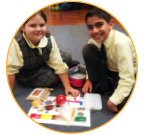
Lunches Unwrapped
This module aims to raise awareness of waste management actions and the implications of waste & littering on the environment and communities. Ultimately reducing waste that heads to landfills. Students develop an understanding of how waste is sorted and where it ends up, and identify the best practices in packing lunches, how to avoid waste and which bin is best to use when it cannot be avoided.
CATCHMENT HEALTH AND LITTER MODULES
Covering stormwater systems, pollutant and litter travel through local catchments and the environmental consequences:
ORGANIC WASTE RECYCLING
Maintaining the systems and the ecosystems found within are explored through discussions and games. The implications of organic waste in landfills, with a focus on methane production, is also discussed. We will aid schools to establish a successful composting program providing information, tips and resources.
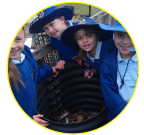
Worm Farming
Worm farming is a simple and effective way to recycle food scraps. Students enjoy discovering how a real worm farm looks and works while learning the correct way of caring for their own.
They will look at the benefits of using this resource, exploring worm farming as an environmentally sound alternative to reduce organic waste sent to landfills.
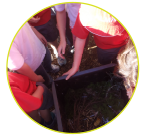
Composting
Students will learn fundamental lessons about disposing of the organic waste they generate – both at home and school. They will learn that their old food scraps and garden waste are valuable resources that can be used as fertiliser. They will look at the benefits of using this resource, exploring composting as an environmentally sound alternative to reduce organic waste sent to landfills.
RESOURCE CONSERVATION
For all education enquiries and information about OOSH and Preschool Workshops, Community Education events or adult education, please contact Shani Patel.
SHANI PATEL
Education Program Co-Ordinator
spatel@kabnsw.org.au
education@kabnsw.org.au
Program Partners:
